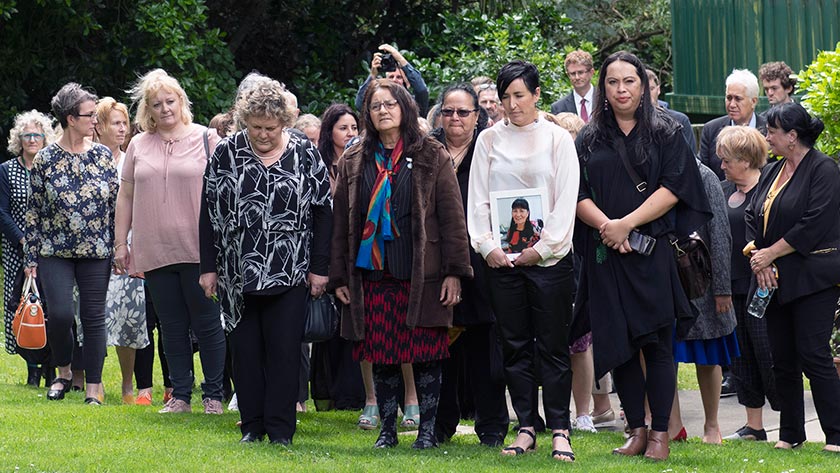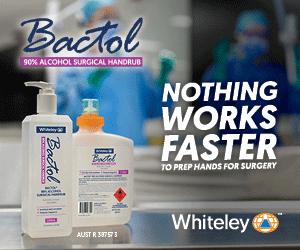Tawhiti rawa i tō tatou haerenga atu te kore haere tonu – You have come too far not to go further; you have done too much, not to do more. Ta James Henare
The beginnings of mahi oranga in Aotearoa can be traced back to the delegated authority of the tohunga. These health experts practised many oranga rituals including karakia, rongoa and whānau rā, rituals handed down from tūpuna. Mahi oranga and mahi tapuhi were inherent components of Māori culture. Whānau members used a variety of medicinal and nursing skills to meet the needs of early Māori.
The first hospital in Aotearoa was established in Auckland in 1850. Hospital nurses had no official training, providing more of a cleaning and support role to doctors. In 1888, the first lectures were given to nursing students, who had to pass an exam after one year. Early nurse training was ad hoc and fostered a subservient nursing aide model. Female nurses were only allowed to nurse on female wards and men nursed on male wards.
On January 10, 1902, Ellen Dougherty from Palmerston North became the world’s first state registered nurse (RN). In 1908, Akenehi Hei from Whakatōhea and Te Whānau-ā-Apanui was one of the first Māori RNs. Alongside Akenehi, we salute Mereana Tangata from Peria in Northland. Mereana, also known as Mary Ann Leonard, trained at Auckland Hospital and gained her registration in 1896.
Between 1910 and 1940, remote rural backblock nursing was introduced, the beginnings of rural nursing. Native health nurses, both Pākehā and Māori, were appointed to the Māori nursing services set up by the government in 1911.
Nursing has responded to people’s need for health care throughout the generations, evolving to what it has become today. Our profession now includes nurse aides, enrolled nurses, RNs, midwives, nurse specialists and nurse practitioners (NPs).
NPs are highly-skilled, autonomous health practitioners whose academic training at clinical masters level includes advanced diagnostic reasoning, clinical and medical management, research enquiry and leadership. The role of an NP, who often works in disadvantaged or isolated rural communities, is to improve health outcomes, enable and increase access to health care and work towards reducing health inequities in the areas in which they serve.
New Zealand’s first NP was Deborah Harris from the Waikato, who was endorsed by the Nursing Council in her speciality of neonatal care in 2001. Two years later, Janet Maloney-Moni was registered as the first Māori NP.
Last month, nurse leaders gathered to celebrate a special moment in nursing history at Te Herenga Waka Marae, Victoria University of Wellington – the gifting by Te Taura Whiri I Te Reo Māori, the Māori Language Commission, of a Māori name for NPs in Aotearoa – mātanga tapuhi. This translates as a nurse with expert knowledge and experience.
It was fitting that Deborah Harris’s speech was a mihi aroha to the late Janet Maloney-Moni who had mentored her when the new NP role was being established. Other official speakers were Ministry of Health chief nursing officer Margareth Broodkoon, RN Nadine Gray, Maloney-Moni’s daughter, former chief nurse Mark Jones, executive officer for the College of Nurses Aotearoa Jenny Carryer and Victoria University Deputy Vice-Chancellor (Māori) Rawinia Higgins. As one of the early Māori NPs, I was able to speak when the floor was opened.
It has taken 19 years to reach this nursing milestone and there are now nearly 500 NPs practising throughout the motu. As pioneers and trail blazers, we were grateful to have shared this significant moment in time. It should encourage all nurses to aspire to their true destiny, to become the best they can and to be great nurses.
Our gratitude goes to all those who have helped us along the NP pathway – our mentors including doctors, physicians, pharmacists, nurses and managers – and the many families who have been part of the journey. Ma te Atua kei a koutou – e manaaki o tiaki i ngā wa katoa.
Rhoena Davis, NP, mātanga tapuhi i whānau ora, BHSc, MN (Hons), works for the Whangaroa Health Services Trust in Northland.
Thanks also to Auckland mātanga tapuhi Michael Geraghty for additional information.





